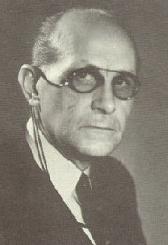A Quote by Jose Ortega y Gasset
In order to master the unruly torrent of life the learned man meditates, the poet quivers, and the political hero erects the fortress of his will.
Related Quotes
I learned that it is better, a thousandfold , for a proud man to fall and be humbled, than to hold up his head in his pride and fancied innocence. I learned that he that will be a hero, will barely be a man; that he that will be nothing but a doer of his work, is sure of his manhood. In nothing was my ideal lowered, or dimmed, or grown less precious; I only saw it too plainly, to set myself for a moment beside it.
One of the appeals of William Carlos Williams to me is that he was many different kinds of poet. He tried out many different forms in his own way of, more or less, formlessness. He was also a poet who could be - he was a love poet, he was a poet of the natural order and he was also a political poet.
I learned the importance of a man's chair early in life. I learned that he may love several wives, embrace several cars, be true to more than one political philosophy, and be equally committed to several careers, but he will have only one comfortable chair in his life. I learned it will be an ugly chair. It will match nothing in the entire house. It will never wear out.
The real master is only a presence. He has no intentions of being a master. His presence is his teaching. His love is his message. Every gesture of his hand is pointing to the moon. And this whole thing is not being done, it is a happening. The master is not a doer. He has learned the greatest secret of life: let-go. The master has drowned his ego and the idea of separation from existence itself.
The faithful man perceives nothing less than opportunity in difficulties. Flowing through his spine, faith and courage work together: Such a man does not fear losing his life, thus he will risk losing it at times in order to empower it. By this he actually values his life more than the man who fears losing his life. It is much like leaping from a window in order to avoid a fire yet in that most crucial moment knowing that God will appear to catch you.
When man has mastered money he shall have mastered not only his economic problem of prosperity but also his political problem, for he will see that money has no place in state functions, and, the money power being entirely in his own hands, he will easily master the state and clearly define its services. Thus money must be seen as the means of mastery of all economic and political problems. Until we have mastered money we shall not master any of our problems. Not money, but a false money system, is the root of all evil.
A man can be a hero if he is a scientist, or a soldier, or a drug addict, or a disc jockey, or a crummy mediocre politician. A man can be a hero because he suffers and despairs; or because he thinks logically and analytically; or because he is "sensitive"; or because he is cruel. Wealth establishes a man as a hero, and so does poverty. Virtually any circumstance in a man's life will make him a hero to some group of people and has a mythic rendering in the culture - in literature, art, theater, or the daily newspapers.
He who does not meditate acts as one who never looks into the mirror and so does not bother to put himself in order, since he can be dirty without knowing it. The person who meditates and turns his thoughts to God who is the mirror of the soul, seeks to know his defects and tries to correct them, moderates himself in his impulses and puts his conscience in order.






































